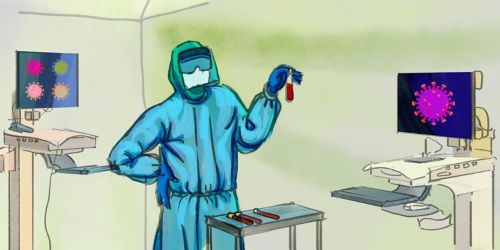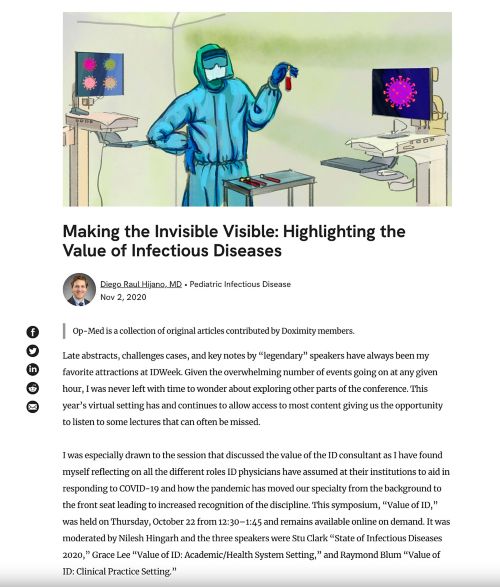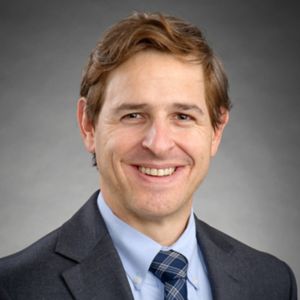St. Jude Family of Websites
Explore our cutting edge research, world-class patient care, career opportunities and more.
St. Jude Children's Research Hospital Home

- Fundraising
St. Jude Family of Websites
Explore our cutting edge research, world-class patient care, career opportunities and more.
St. Jude Children's Research Hospital Home

- Fundraising
The enhanced role of an infectious disease specialist

Illustration by Jennifer Bogartz / Doximity
Patients and hospitals do better when infectious disease specialists are involved. ID physicians are always willing to assist. We are thorough, accessible and helpful in complex cases that fall outside clinical guidelines. At an organizational level, ID physicians play major roles in infection control and antimicrobial and diagnostic stewardship programs, as well as in education and support of critical clinical programs such as the ICU, hematology-oncology and transplant. Participation of an ID physician in multidisciplinary rounds in the ICU has shown to significantly decrease days of antibiotic therapy and costs. Early ID specialty intervention lowers patient mortality rates, reduces costs, shortens the patient length of stay, and decreases the likelihood of re-hospitalization among patients younger than age 65.

I recently wrote an editorial about the role of infectious disease physicians and their growing importance in many clinical disciplines. You can read the full opinion piece here.
The number of ID physicians has declined in recent years. This is partly because they are among the lowest-compensated specialties in medicine. In addition, immigration policies affect the placement of non-citizen physicians, who represent a third of ID specialists in U.S. hospitals. While we are valued for our clinical ability, communication skills, support to other specialties and curbside consults, we are paid by number of consults, clinic visits and our role in infection control and antimicrobial stewardship.
Our specialty has changed significantly though: We now consult on chronic diseases such as HIV and hepatitis C, which require long-term follow-up. Increased use of prosthetic devices can lead to complex infections. The threat of multi-drug–resistant organisms and difficult-to-treat infections continues to increase, with a simultaneous emphasis on cost and the use of multiple therapeutic options.
The role of an infectious diseases physician on the health care team helps to ensure patients receive the highest level of care. This pandemic has shed light on the scarcity of these specialty physicians, their added value to health care and the need for more.






